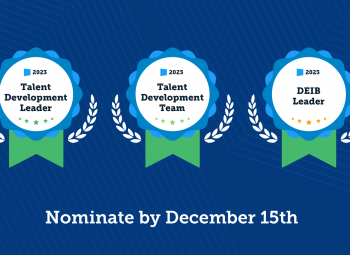The future of work is happening right now. Innovative People leaders and teams are reimagining new approaches to where, when and how we work. Help us recognize the most innovative DEIB Leaders/Teams, Talent Development Leaders/Teams, and Chief People Officers through the 2023 People Innovator Awards.
A Talent Development Wakeup Call from ByteDance
February 4, 2022
TikTok's owner, ByteDance, dissolved their entire Talent Development team, and the internal memo is a wakeup call to TD leaders.
They said the Talent Development team’s work had “limited practical value” and represented a “disconnect” from the company’s needs, even though "Talent Development is still very much a priority for us and our employees.” They went on to call out that "Some respondents mentioned that employees believed such inititiaves to be 'personally helpful', but candidly speaking, these are more like 'feel good' initiatives that are self-indulging and 'doing things for the sake of doing things', where the actual value is limited and questionable."
Regardless of what you think of ByteDance's decision and how they executed on it, one thing is clear: delivering 'feel good' programs is not enough. Outcomes come first. Now that doesn't mean that all development has to be focused on bottom-line metrics. Instead, the development outcomes must align with the company goals---whether that's growth or inclusion or wellbeing.
How does your Talent Development strategy map to key business objectives? Get started by downloading our free Talent Development Strategy Playbook.



Add new comment